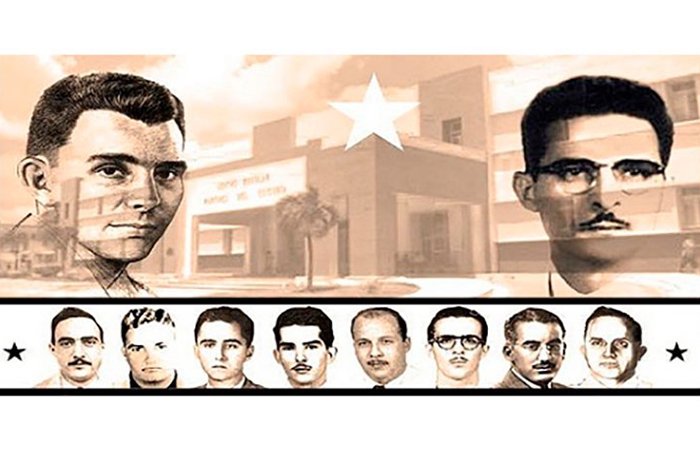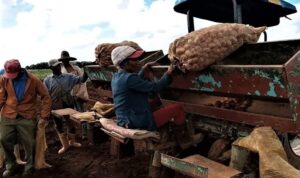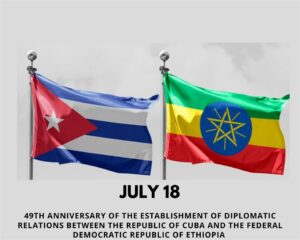A sovereign decision of the government of the people in power proclaimed 30 July as the Day of the Martyrs of the Revolution, during the first national commemoration of the assaults on the Moncada Barracks in Santiago de Cuba and Carlos Manuel de Céspedes Barracks in Bayamo, in homage to all those who fell for freedom and especially to Frank País García and Raúl Pujol Arencibia, viciously murdered in 1957 on the date set for veneration.
«It’s Santiago de Cuba, don’t be surprised at anything», is how the poet Manuel Navarro Luna described for the sacred memory the great shock, pain and anger aroused by the horrendous crime that took the lives of Frank, head of Action and Sabotage of the 26th of July Movement, aged only 22, together with his companion in the famous Callejón del Muro, killed near the house of the latter, where they had taken refuge from the persecution of the tyrant.
Colossal and full of courage was the popular demonstration that became the burial of both revolutionaries on 31 July, and thus the citizens of Santiago, in the name of the whole nation, showed their strength without a hint of fear, facing the guns that were pointed at them on street corners and in the squares of the streets in a defiant human tide.
On the date of the assassination of Frank País, a young man full of light and heroic, the tribute paid by Cubans to all their compatriots who died for independence, freedom and the ideals of social justice since the beginning of the struggle for freedom on 10 October 1868, when the unique and vast Cuban Revolution began, is very valid.
A month earlier, his brother Josué, only 19 years old, was massacred in another crime of the dictatorship along with two companions in the cause.
Under the nom de guerre of David, Frank was a member of the National Directorate of the 26th of July Movement, founded in 1955 by Fidel before he went into exile. He headed the Action and Sabotage front, a responsibility that led him to carry out incessant, risky and unrelenting activity, without a care in the world, all over the city.
He had not yet stopped when, after the events of the uprising of 30 November 1956, organised by him in support of the landing of the Granma yacht, he was imprisoned and tried. When he left prison, he was under heavy surveillance by Fulgencio Batista’s henchmen, who were constantly committing crimes all over Cuba.
He then sought a way to meet Fidel Castro in the Sierra Maestra in February of that year and did not cease his organisational work to send men, weapons and medicines to the armed struggle begun in the mountain range.
He worked as a teacher after graduating from the Normal School in Santiago de Cuba. He came from a very humble background and was the son of two modest Spanish emigrants from Galicia. His father, a Protestant pastor, and his mother, the father’s father died early.
A convinced Martiano, he was active from his adolescence in various student organisations at the secondary school level, in which he played a leading role in the pursuit of justice.
Noble, serious and at the same time very cheerful, he identified himself with the usual forms of youthful entertainment such as music, parties, and was an amateur in the plastic arts.
His patriotism was strengthened by the coup d’état perpetrated by Batista in 1952, and by his work as a teacher at the El Salvador school.
In 1954, the year of his graduation, he founded the Acción Revolucionaria Oriental (ARO), together with Pepito Tey and other friends, with the aim of taking up armed struggle as a method of combat.
When he heard about the creation of the M-26-7, he contacted Fidel and asked to join the new organisation. The ARO led by him joined the new organisation. There can be no doubt of his great sense of the historical moment and of his constantly maturing political evolution.
Raúl Pujol was born on 2 December 1918 in Palma Soriano, near Santiago. At a young age he moved to live in the former capital of the province of Oriente.
In his homeland he was able to own a small hardware store, working hard, which he then put almost entirely at the service of the cause, which he embraced at a very early age. He was also a vertical militant, willing to do anything and very daring.
On the day of their assassination, Frank had been holed up in Raul’s house nearby, but a tip-off put the hitmen on the trail of the revolutionaries and their agents began to search the houses in the neighbourhood. Raul found out about the inspection while he was away. He alerted his partner and agreed to meet him soon, to get out of the area. Too late.
They were walking along trying not to be identified when they were intercepted, recognised by a former classmate of Frank’s, at the time a casquito, and viciously killed in the middle of the street.
Fidel Castro, from the mountains of the Sierra Maestra, condemned the barbarity and referred to the extraordinary courage of the legendary Frank País.
To remember them today in a special way, together with the legion of other unforgettable compatriots, is a duty and an honour that good Cubans will always honour.




